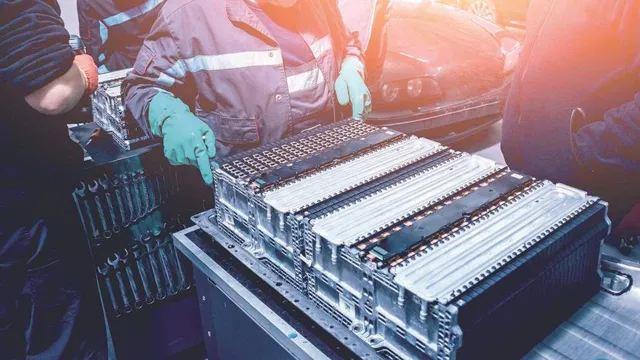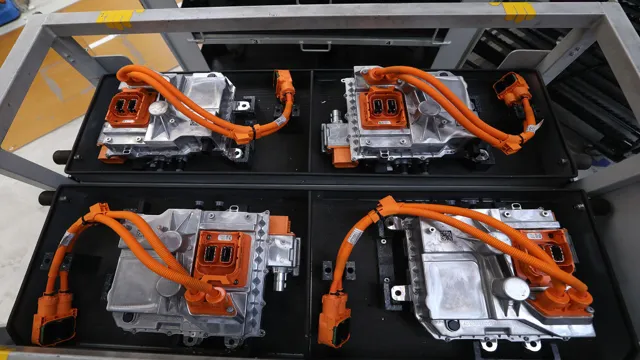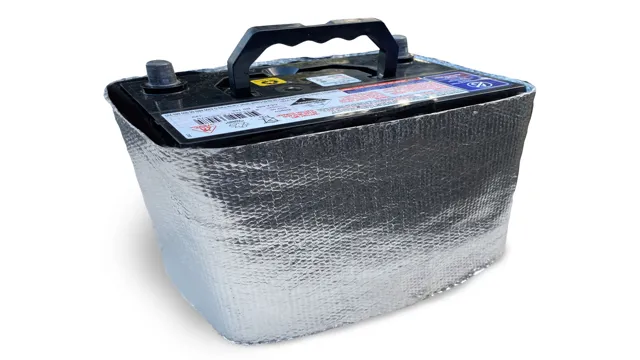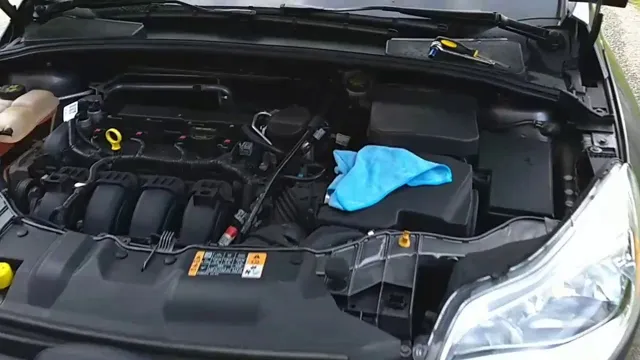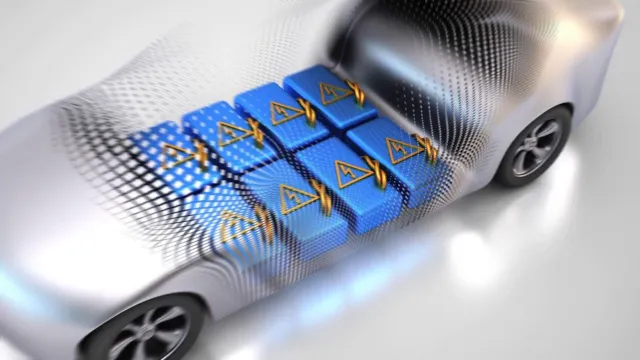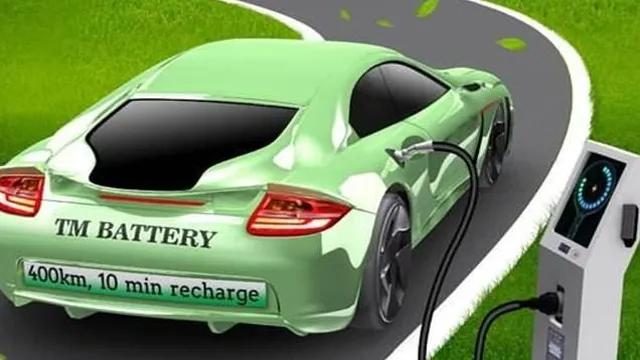Exploring the Challenges of Electric Car Battery Recycling: Are We Facing a Sustainability Crisis?
As the electric vehicle industry continues to boom, there is an increasing concern over what will happen to the batteries once they expire. While we are becoming more eco-conscious as a society, the recycling process for electric car batteries is not as straightforward as many would like it to be. In fact, there are a number of electric car battery recycling problems that must be addressed if we hope to maintain a sustainable transportation system.
In this blog, we will take a closer look at these challenges and explore potential solutions to ensure a brighter, greener future.
Introduction
As more and more electric cars hit the road, an important question arises: what happens to their batteries once they reach the end of their useful life? Repurposing these batteries or recycling them has become a major concern as their disposal can lead to environmental contamination. Electric car battery recycling problems have emerged due to the complex and diverse nature of battery chemistries, which require specific processes to ensure maximum reuse and recycling potential. Additionally, the lack of a comprehensive recycling infrastructure and the high cost of recycling further complicate the issue.
However, despite these challenges, progress is being made to improve battery recycling processes and create sustainable solutions for this issue. As electric vehicles continue to grow in popularity, addressing these recycling challenges will become even more critical to ensure that the transition to electric mobility remains environmentally friendly and sustainable.
Overview of the electric car battery recycling process
Electric car battery recycling is an essential process that helps reduce the environmental impact of electric vehicles. The process involves collecting used batteries from electric cars and breaking them down into their component materials, such as metals, plastics, and chemicals. These materials are then sorted and processed to be reused in new batteries or other products.
The recycling process helps reduce waste and pollution by preventing hazardous materials from ending up in landfills or being improperly disposed of. Over time, recycling EV batteries will become increasingly important as more people switch to electric cars, and the demand for new batteries rises. As such, sustainable and efficient recycling techniques are essential for a greener future.
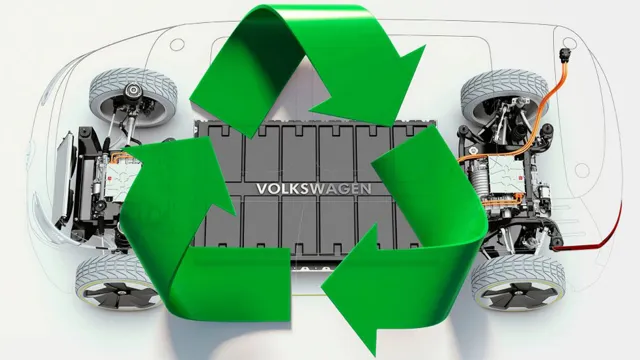
Why we need to recycle electric car batteries?
Recycling electric car batteries has become increasingly important as the world shifts towards a more sustainable future. The batteries used in these vehicles are a complex mix of metals and chemicals, and if not disposed of properly, they can release harmful pollutants into the environment. Moreover, the demand for electric vehicles is only set to increase in the coming years, which means that there will be an even greater need for effective battery recycling solutions.
By recycling these batteries, we can recover valuable materials like lithium and cobalt that can be used to manufacture new batteries or other products. It’s a win-win situation for everyone – we reduce waste going to landfills, decrease our reliance on virgin materials, and ultimately create a cleaner and greener planet. It’s time to take action, and recycling is the first step towards a sustainable future.
Current Challenges in Electric Car Battery Recycling
Tackling the issue of electric car battery recycling problems is no small feat. One of the biggest challenges is the sheer volume of batteries that need recycling. As electric vehicles continue to gain in popularity, the number of batteries that need to be recycled grows exponentially.
This puts a tremendous strain on recycling facilities, which may struggle to keep up with demand. Additionally, there may be issues with the quality of the batteries being recycled. Batteries that have degraded over time may not be suitable for reuse or recycling, which can create a bottleneck in the recycling process.
Despite these challenges, progress is being made in the field of electric car battery recycling. Researchers are exploring new techniques for more efficient and effective recycling, while policymakers are implementing regulations to ensure that batteries are handled responsibly and sustainably.
Lack of infrastructure
One of the current challenges in electric car battery recycling is the lack of infrastructure and facilities to handle the growing number of used batteries. With the increasing demand for electric vehicles, the need for a sustainable and efficient recycling process for their batteries is more important than ever. However, many regions lack the required facilities and equipment to properly recycle these batteries, which are not only composed of valuable materials but also potentially hazardous ones.
The current lack of infrastructure for electric car battery recycling makes it difficult to support a circular economy and increase the adoption of electric vehicles, but efforts are being made to address this issue. Investment in infrastructure and the development of new recycling technologies are necessary to ensure a sustainable future for electric mobility.
Costs associated with recycling
One of the main challenges associated with recycling electric car batteries is the cost involved. With this new technology, the recycling process is still in its early stages, and the economy of scale has not yet been achieved. This means that the costs of collecting, sorting, and processing the batteries are still quite high, which can impact the overall viability and sustainability of the technology.
However, despite these challenges, there are efforts being made to reduce these costs and improve the overall sustainability of the recycling process. One potential solution is to leverage automation and technology to streamline and optimize the recycling process, which can reduce labor costs and increase efficiency. Additionally, as more and more companies invest in the technology, the overall demand for recycled batteries will increase, which can lead to greater economies of scale and lower costs over time.
Ultimately, while there are certainly costs associated with recycling electric car batteries, there are also significant opportunities to improve and optimize the process, and to create a more sustainable future for the industry.
Safety concerns
Electric car battery recycling currently poses several safety concerns that need to be addressed. The batteries found in electric cars are incredibly powerful and can ignite if mishandled or damaged. As a result, the recycling process requires proper handling and disposal methods to avoid any hazardous situations.
Additionally, the growing demand for electric cars has led to an increase in the number of old batteries that need to be recycled. The current challenge is to find a safe and efficient way of disposing of and recycling these batteries without causing harm to the environment or humans. The need for proper training and safety protocols in battery recycling facilities is crucial to ensure the well-being of workers and to reduce possible hazards.
It is imperative to find a sustainable solution to meet this challenge and minimize any potential dangers. Electric car battery recycling is essential to make electric cars a more sustainable option, but it needs to be done in a safe and eco-friendly manner to ensure a greener future.
Environmental Impact of Improper Disposal
Electric car batteries are a revolutionary invention, reducing carbon emissions and increasing the fuel efficiency of vehicles. But, their environmental impact can be significant if not disposed of properly. One of the major problems with electric car battery recycling is the amount of hazardous materials they contain, such as lead and lithium.
If not recycled correctly, these toxic materials can seep into the ground and water sources, harming the environment and wildlife. Additionally, improper disposal can lead to a surge in e-waste, which decreases the lifespan of landfills, and pollutes the air, soil, and water. These problems highlight the importance of proper electric car battery recycling, which involves extracting all valuable materials, like cobalt and nickel, before safely disposing of the waste.
By doing so, we can prevent harmful materials from polluting and contaminating our planet while preserving valuable resources.
Toxicity of battery components
When we talk about the impact of batteries on the environment, we can’t ignore the toxicity of their components. Batteries typically contain heavy metals such as lead, cadmium, and nickel, which can be harmful to both humans and the environment if not discarded properly. In fact, improper disposal of batteries is one of the leading causes of soil and water pollution.
When batteries end up in landfills, these toxic components can leach into the groundwater, contaminating it with dangerous levels of heavy metals. And because batteries take hundreds of years to decompose, the effects of this pollution can be felt for generations to come. So, it’s crucial that we dispose of batteries responsibly by recycling them or taking them to a hazardous waste facility.
By doing so, we can help prevent the negative environmental impact of battery components and ensure a healthier planet for future generations.
Impact on landfills and groundwater
Improper disposal of waste can have severe environmental consequences, particularly on landfills and groundwater. When waste is not disposed of correctly, it can accumulate in landfills, which become a significant source of pollution. Over time, landfill liners can deteriorate, resulting in toxic chemicals leaching into the soil and groundwater, contaminating the local ecosystem and posing severe health risks to nearby communities.
Additionally, improperly disposed of hazardous waste can emit harmful gases into the air, contributing to global warming and other environmental problems. Even seemingly harmless items like plastic bags can cause significant damage, as they take hundreds of years to decompose, filling up landfills and causing harm to wildlife. The environmental impact of improper waste disposal is significant and demands immediate and ongoing attention to ensure a healthy, sustainable future for our planet.
Efforts to Improve Electric Car Battery Recycling
Electric car battery recycling problems have become a major concern in recent years. Due to the rapid growth in demand for electric vehicles, the number of batteries being manufactured has increased significantly. While electric car batteries have a longer lifespan than those in traditional cars, they still need to be disposed of and recycled eventually.
The problem is, traditional recycling methods are not sufficient in breaking down and recovering the materials in these batteries. As a result, there have been efforts to improve electric car battery recycling. Some methods include using hydrometallurgical or pyrometallurgical processes to extract valuable materials such as lithium, cobalt, and nickel.
These materials can then be repurposed and reused in various industries. Additionally, companies have also explored ways to repurpose intact batteries for use in energy storage systems, further reducing waste. Although there is still much work to be done, the efforts being made to improve electric car battery recycling are a step in the right direction towards a future of sustainability.
Research and development of new methods
Electric Car Battery Recycling The electric vehicle industry has seen a surge in demand in recent years with more people becoming environmentally conscious. However, with the rise in electric car production also comes the challenge of dealing with battery waste. Recycling electric car batteries is crucial to minimize environmental impact since its components like lithium-ion are hazardous to the environment.
To address this issue, researchers are developing new methods to improve electric car battery recycling. One promising method is the use of pyrometallurgy, a high-temperature metallurgical process that recovers valuable metals from used batteries. Additionally, some companies are exploring a circular economy approach to electric vehicle battery recycling, where used batteries are repurposed for other uses instead of just being recycled for raw materials.
With these efforts, the electric car industry can become more sustainable, efficient, and environmentally friendly.
Policy and regulation changes
As electric cars become increasingly popular, there is growing concern about what to do with their batteries when they reach the end of their life. Fortunately, efforts are underway to improve electric car battery recycling. One promising development is the establishment of new regulations designed to make it easier for manufacturers to recycle their old batteries.
These regulations require them to collect and recycle a certain amount of batteries each year, ensuring that they don’t end up in landfills where they can leak harmful chemicals. In addition, researchers are working on new methods for recycling batteries that could make the process more efficient and cost-effective. Some of these methods involve separating out the different components of the battery so that they can be more easily reused.
Others involve finding new uses for the batteries, such as storing energy from renewable sources like wind and solar power. With these and other innovations on the horizon, it’s clear that the future of electric car battery recycling is looking brighter than ever before.
Conclusion
Well, when it comes to electric car batteries, the future is looking bright, but not completely problem-free. Sure, they reduce our carbon footprint and help save the environment, but their recycling process does pose some challenges. With the increasing demand for electric vehicles, it’s important that we find sustainable solutions for their battery disposal.
It’s time for us to switch gears and invest in innovative ways to recycle these batteries so we can keep our planet clean and green for generations to come. After all, the road to a sustainable future starts with a cleaner battery.”
FAQs
What are the major challenges associated with electric car battery recycling?
One of the major challenges is that the current recycling technologies are expensive and not very efficient. Another challenge is that the recycling process can cause environmental damage if not carried out properly.
What happens to electric car batteries after they reach the end of their life?
After the end of their life, electric car batteries are usually recycled instead of being disposed of. The recycling process involves extracting valuable metals and chemicals from the battery, which can be used to make new batteries.
How are electric car batteries recycled?
Electric car batteries are typically recycled by breaking them down into their constituent parts and then extracting valuable metals and chemicals from the battery. This process involves several stages, including crushing, shredding, and smelting.
What are the environmental benefits of electric car battery recycling?
Electric car battery recycling has several environmental benefits. It reduces the amount of waste sent to landfills and helps to conserve natural resources. It also reduces the carbon footprint of electric vehicles by reducing the need for new battery production.
